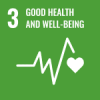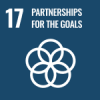Center for Tropical Medicine, Faculty of Medicine, Public Health, and Nursing (FKKMK) UGM collaborates with the World Mosquito Program (WMP), the Tahija Foundation, and the Yogyakarta City Government conduct activities of Science for Humanity in the form of a Plan to Expand the Benefits of Wolbachia Mosquitoes in Yogyakarta City. This activity’s implementation is based on the fact and claims that the breeding and spread of Wolbachia mosquitoes in Yogyakarta City can reduce Dengue Hemorrhagic Fever (DHF) cases drastically.
The Ceremony for Expanding the Benefits of Wolbachia Mosquitoes took place in Rejowinangun Village, Kotagede, Yogyakarta, on Wednesday (2/9). There were some attendants at the event, such as Deputy Mayor of Yogyakarta, Heroe Purwadi, Regional Director of WMP Asia, Dr. Claudia Surjadjaja, the Head of the Tahija Foundation, Trihadi Saptoadi, and dr. Riris Andono Ahmad, MPH., Ph.D. In addition, Den Baguse Ngarso hosted the online ceremony of the event.
Riris Andono Ahmad revealed that the research conducted showed that the Wolbachia mosquito effectively reduced 77 percent of dengue fever cases in the intervention area compared to the comparison area. The Center for Tropical Medicine FKKMK UGM has conducted this research since 2017.
The research was conducted by releasing Aedes aegypti mosquitoes infected with Wolbachia bacteria on a large scale in Yogyakarta City. The study was conducted in the intervention area as compared to the control area.
“There were 24 clusters in Yogyakarta; half of the regions had been spread by Wolbachia, while the rest have not yet,” he said.
According to him, Wolbachia bacteria can control the replication of the dengue virus. Therefore, when a mosquito sucks blood containing the dengue virus, it cannot replicate in the mosquito’s body.
“The implication is that the dengue virus cannot be transmitted to other people. Besides, Wolbachia bacteria are passed down to the next generation,” he explained.
He added that there have already been 12 districts in Yogyakarta spread by Wolbachia mosquitoes. In this activity, there were two more districts for the Aedes aegypti elimination program.
“We will possibly do it in Sleman,” he added.
The Deputy Mayor of Yogyakarta, Heroe Poerwadi, said that there were 1,700 dengue fever cases in Yogyakarta City in 2016. After the DHF control activities using the Wolbachia method with the Tropical Medicine Center of the Faculty of Medicine, Public Health and Nursing, Universitas Gadjah Mada (FKKMK UGM), the Jakarta Tahija Foundation, cases drastically declined.
“Last year, there were only around 200-300s, so we thought that it decreased drastically. We hope that if all Yogyakarta City areas have Wolbachia mosquitoes, there will be a lower number of DHF cases,” he hoped.
Even though using Wolbachia technology can reduce the number of dengue cases, Heroe said, residents must continue to live a clean and healthy lifestyle and routinely doing Mosquito Nest Eradication (PSN) free from dengue and other diseases.
The chairman of the Tahija Foundation, Trihadi Saptoadi, expressed his pride and gratitude for the RCT research success.
“We all can accomplish this activity with the remarkable support from the stakeholders, especially the community’s participation in Jogja,” he said.
He added that as part of ethical and moral responsibility, the release of mosquitoes should be carried out as soon as possible in the control area after consultation and approval by all parties. He hopes that this region will also undergo a significant decline in the future.
WMP Asia Regional Director, Claudia Surjadjaja, conveyed that the World Health Organization (WHO) in 2019 stated that dengue is 1 of 10 health threats in the world because there is no effective intervention. Meanwhile, in 2012, the WHO targeted a decrease in deaths due to dengue fever by 50 percent. While by 2020, WHO targeted the decline of dengue fever infection by 25 percent.
“This target is hard to attain due to the absence of a widely used vaccine and effective dengue fever control,” he said.
According to him, the innovations developed by the World Mosquito Program (WMP) so far are expected to contribute to achieving the target of reducing deaths and morbidity due to dengue fever.
“At the moment, WMP operates in 12 countries for Indonesia, India, Sri Lanka, Vietnam, Brazil, Colombia, Mexico, Australia, Fiji, Vanuatu, Kiribati, and New Caledonia. In the future, we will continue to develop cooperation with the government and the community, especially in dengue-endemic areas, to fight dengue jointly,” added Claudia.
Source: https://ugm.ac.id/id/berita/19999-perluasan-manfaat-nyamuk-ber-wolbachia-di-kota-yogyakarta



